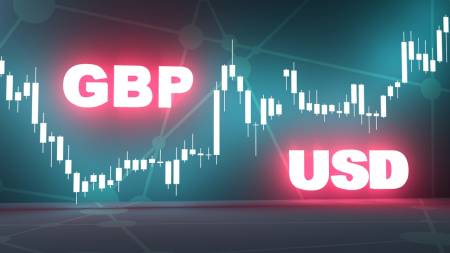The GBP/USD climbed during the mid-North American session on Wednesday after economic data suggested the UK’s economy remains solid after a release of strong PMI figures. That and soft US Dollar, which are the reasons supporting Sterling’s advance. At the time of writing, the major trades at 1.2726 gaining 0.36%. UK Flash PMIs for January revealed by S&P Global showed that economic activity gathered steam, with Manufacturing PMI rising from 46.2 to 47.3 while the Services index jumped from 53.4 to 53.8. Consequently, the S&P Global Composite PMI rose from 52.1 to 52.5 hitting a 7-month high. Comments by Chris Williamson, Chief Economist of S&P Global, said that business activity “accelerated for a third straight month.”
Across the pond, the Greenback gained some traction and dragged the GBP/USD from its daily high of 1.2774 to current exchange rates, as the economy gains momentum, revealed the latest S&P Global PMIs. January figures. The manufacturing index exited from recessionary territory, clocking 50.3 above forecasts and last month’s 47.9 reading, while the services sector advanced from 51.4 to 52.9. Therefore, the Composite PMI ascended from 50.9 to 52.3. In the meantime, traders seem convinced the US Federal Reserve (Fed) would cut rates by more than 150 basis points, as shown by the Chicago Board of Trade (CBOT) data. Nevertheless, US data from the last two weeks depicts the US economy remains robust and might dissuade Fed officials from relaxing monetary conditions. In the meantime, US Treasury bond yields are rising sharply in the belly and long end of the yield curve. The 10-year benchmark note rate is up four basis points at 4.17%. Despite that, the US Dollar remains on the defensive, according to the DXY – US Dollar Index–, down 0.33% at 103.19.
Ahead of the week, the UK economic calendar is light, though the US docket would feature GDP and the Fed’s preferred gauge for inflation, the Personal Consumption Expenditures (PCE). From a technical standpoint, the GBP(SD remains upward biased but must reclaim the next cycle high hit on January 12 at 1.2785 before challenging the 1.2800 mark. Further gains are seen above December’s 28 swing high of 1.2821, followed by last July’s 27 high at 1.2995. On the flip side, if sellers keep the spot price below 1.2750, that could pave the way for a drop to first support at 1.2700. Up next would be the confluence of the 50-day moving average (DMA) and January’s 23 low of 1.2644/49m ahead of the 200-DMA at 1.2551.




